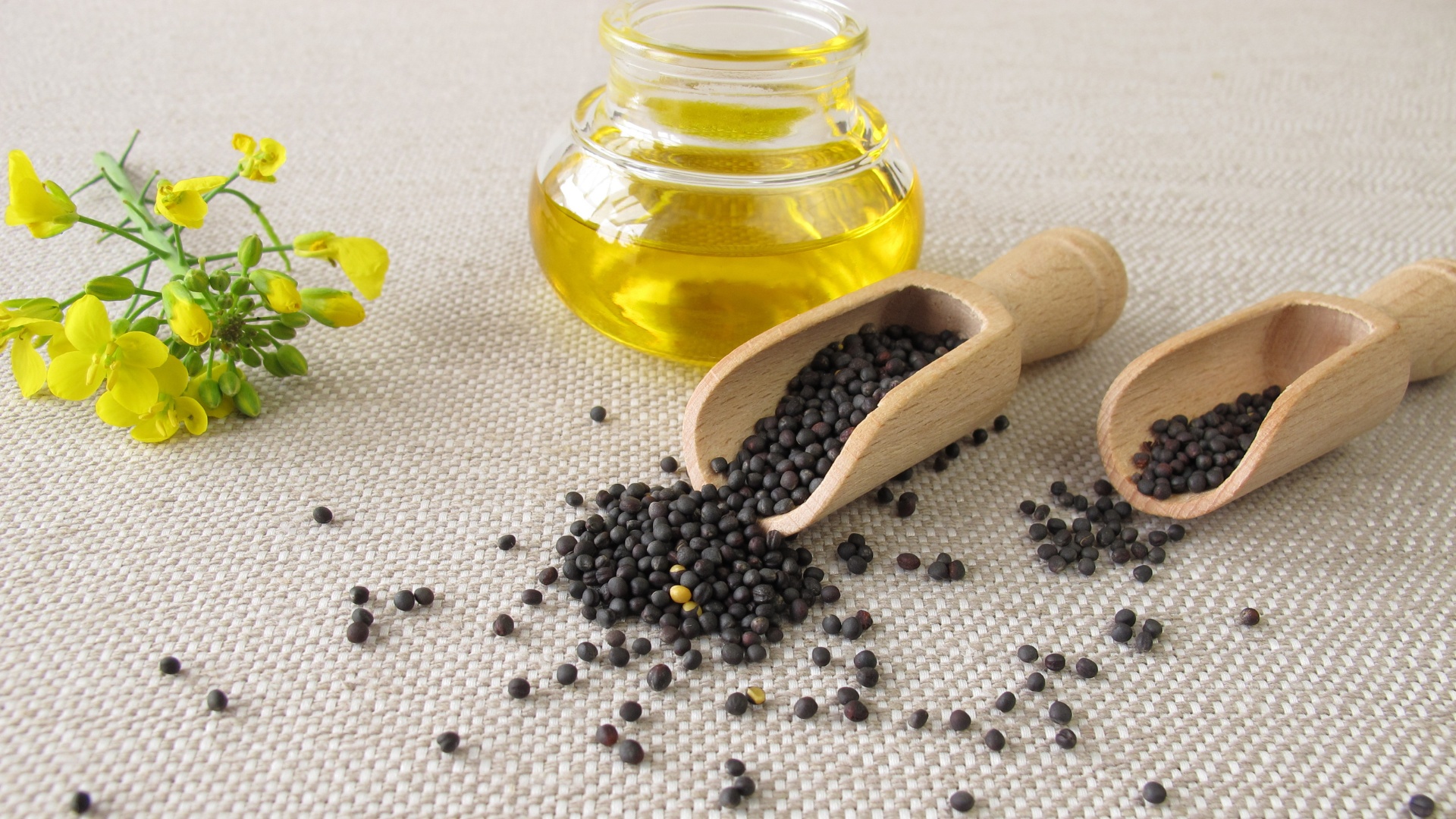
Canola oil is one of the most widely used cooking oils around the globe, especially popular in North America, Europe, and parts of Asia. Known for its light flavor, high smoke point, and heart-friendly composition, canola oil has become a staple in homes and food industries alike. But despite its popularity, there are still questions about its nutritional value, health effects, and how it compares to other oils like olive or sunflower oil.
This article explores the origin, processing, nutritional value, health benefits, concerns, and industrial applications of canola oil — helping you make informed choices in the kitchen.
Table of Contents
What is Canola Oil?
Canola oil is derived from the seeds of the canola plant, which is a genetically modified version of the rapeseed plant. The name “Canola” stands for Canadian Oil, Low Acid, highlighting its origin and its reduced erucic acid content, which made rapeseed oil previously unsuitable for human consumption.
Through breeding techniques in the 1970s, scientists developed a plant with much lower erucic acid and glucosinolates, resulting in the safe and edible version we know today as canola oil.
Nutritional Profile of Canola Oil (Per 1 tablespoon / ~14g)
-
Calories: ~120 kcal
-
Fat: 14 g
-
Saturated fat: 1 g
-
Monounsaturated fat: 9 g
-
Polyunsaturated fat: 4 g (includes omega-3 and omega-6)
-
-
Omega-3 fatty acids: ~1.3 g
-
Omega-6 fatty acids: ~2.6 g
-
Vitamin E: 16% of Daily Value
Canola oil is cholesterol-free and contains one of the lowest saturated fat contents among all cooking oils.
Health Benefits of Canola Oil
1. Heart Health
Canola oil is rich in monounsaturated fats and contains a good balance of omega-3 and omega-6 fatty acids. These fats are known to lower bad cholesterol (LDL) and may reduce the risk of heart disease when used in moderation.
2. High Smoke Point
With a smoke point of approximately 400°F (204°C), canola oil is excellent for high-heat cooking methods such as frying, sautéing, and baking, making it versatile for various cuisines.
3. Supports Brain and Nerve Function
The omega-3 alpha-linolenic acid (ALA) in canola oil may support cognitive health, especially when combined with an overall balanced diet.
4. Rich in Vitamin E
Canola oil is a good source of vitamin E, a powerful antioxidant that helps protect body cells from oxidative damage and supports immune function.
5. Weight Management
Due to its low saturated fat content and light taste, canola oil can be part of a calorie-controlled diet when used properly, helping with weight control.
Concerns and Controversies
Despite its benefits, canola oil has been the subject of health debates:
1. Genetic Modification (GMO)
Most canola crops are genetically modified. While GMOs are considered safe by many regulatory agencies, some people prefer to avoid them for personal or environmental reasons.
2. Refining Process
Commercially produced canola oil undergoes a refining process involving high heat and chemical solvents (like hexane), which may reduce some nutritional value. Cold-pressed or expeller-pressed options are available but less common.
3. Omega-6 Imbalance
While canola oil has a decent omega-3 to omega-6 ratio, excessive use in combination with other omega-6-heavy oils could contribute to inflammation if not balanced with sufficient omega-3 intake from other sources.
Culinary Uses of Canola Oil
Canola oil's mild flavor and high smoke point make it a favorite in both home kitchens and commercial food processing.
-
Cooking: Ideal for stir-frying, baking, deep-frying, grilling, and sautéing
-
Salad Dressings: Blends well with herbs and vinegar for dressings and marinades
-
Baking: Adds moisture to cakes, muffins, and quick breads
-
Mayonnaise and Sauces: Used as a base in commercial dressings and spreads
-
Industrial Food Production: Used in snacks, fried foods, frozen meals, and margarine
How Does Canola Oil Compare to Other Oils?
| Oil Type | Saturated Fat | Omega-3s | Smoke Point | Flavor |
|---|---|---|---|---|
| Canola Oil | Low (~7%) | Moderate | High | Neutral |
| Olive Oil | Medium (~14%) | Low | Medium | Fruity, Rich |
| Sunflower Oil | High (~10%) | Low | High | Mild |
| Coconut Oil | Very High (~87%) | None | Medium | Distinctive |
| Avocado Oil | Low (~12%) | Low | Very High | Buttery |
Canola oil offers a balanced choice between nutrition and functionality, particularly where neutral taste and heat stability are needed.
Tips for Buying and Using Canola Oil
-
Choose cold-pressed or expeller-pressed canola oil for less processed options
-
Store in a cool, dark place to avoid oxidation
-
Use in moderation and rotate with other healthy oils like olive or flaxseed
-
Avoid reusing oil multiple times in frying as it degrades quality and forms harmful compounds
Canola oil is a versatile and heart-healthy cooking oil that has earned its place in modern kitchens. With a balanced fat profile, high smoke point, and light taste, it’s ideal for everything from deep frying to baking. While some concerns exist around its GMO origins and refining process, choosing high-quality, less processed versions and using it as part of a balanced diet can help you get the best out of this oil.
Whether you're health-conscious, budget-minded, or a home cook seeking reliability, canola oil remains a smart and widely accepted option in the culinary world.


